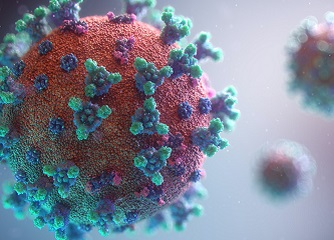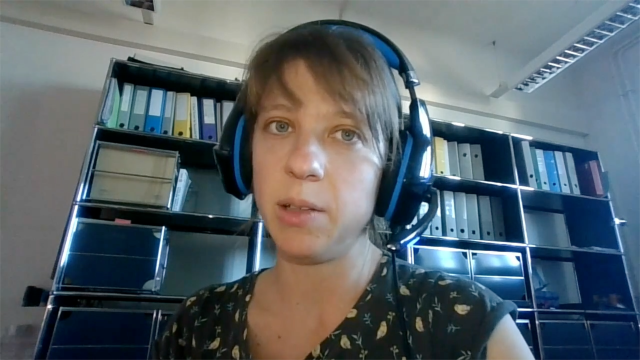
Variants can affect the sensitivity of tests for SARS-CoV2. To make sure that current tests will still work we need to play hide-and-seek with an evolving virus
20 May 2021
Sergio Pistoi
Variants can affect the sensitivity of tests for SARS-CoV2. To make sure that current tests will still work we need to play hide-and-seek with an evolving virus
Viruses do not evolve with the purpose of being more or less infectious or dangerous: it is just natural selection at work. New random variants occur continuously and most of them are neutral or make the virus less infectious. But a few variants are more infectious, or become resistant to the immune system, and therefore spread more rapidly and may become prevalent in the population.
Identifying new variants of the COVID-19 coronavirus is essential for monitoring the pandemic and its evolution. It is also paramount to ensure that the diagnostic tests used worldwide can still detect the virus.
“The technology we have nowadays enables us to move from looking at the viral genomes to foreseeing public health burdens. When new variants appear, we have to dive deeper to assess their impact, and check if the tools we have are still good. The major concern lies in the effectiveness of diagnostics and vaccines,” says Marianne Rocha Hasler, a post-doctoral researcher at the Virus Research Group of the Medical University of Vienna and a member of the EU project CORONADX, which is developing three rapid tests for on-site diagnosis of coronavirus.
Variants have no border
Variants are often associated with a country or a place (e.g. The “UK”, “Brazilian” or “New York” variants for SARS-CoV-2). This can be misleading, since they have no border; geographical names only reflect the place where they were first discovered. To indicate each variant, scientists use codes with no geographical meaning. For example, the so-called “UK” variant is B.1.17.
Researchers around the world collect throat swabs or other viral samples from COVID-19 patients and read the coronavirus’s genome. These data are uploaded into dedicated platforms such as Nextstrain and become freely available. With these databases, epidemiologists can monitor the emergence of new variants in different places and warn about the ones that may be of concern.
“The biggest challenge I see is how to transform successful local initiatives into global operative actions,” says Marianne Rocha Hasler. “Countries with the power and capacity to speed track the emergence of variants must aim for international collaborations and better support low- and middle-income countries to establish, or strengthen, their monitoring strategy. We need to focus more on a comprehensive international strategy to lower costs and get results faster,” she adds.
The problem with COVID19 tests and new variants
Tests for the COVID-19 coronavirus work by detecting specific targets of the viral genome (molecular tests) or specific viral proteins (antigenic tests). A mutation that changes the target may therefore affect their sensitivity. The tests available on the market are designed to detect different parts of the virus. Therefore, a variant may affect one or a few tests while the others would still work.
Manufacturers often validate their kits against the most common variants. By knowing the target of a test, it is possible to predict whether its performance may be affected by a specific variant. For example, at the time of writing, most variants of concern carry mutations in the gene S1 coding for the so-called spike protein. The most available diagnostic kits detect other targets than the spike protein and its gene, and therefore will work with these variants.
Some molecular tests also detect multiple targets, making them more reliable with different variants. That said, it is always possible, in theory, that a new variant could run undetected for some time. Health authorities and diagnostic networks need to keep abreast of emerging variants and verify the efficacy of the different tests against them.


